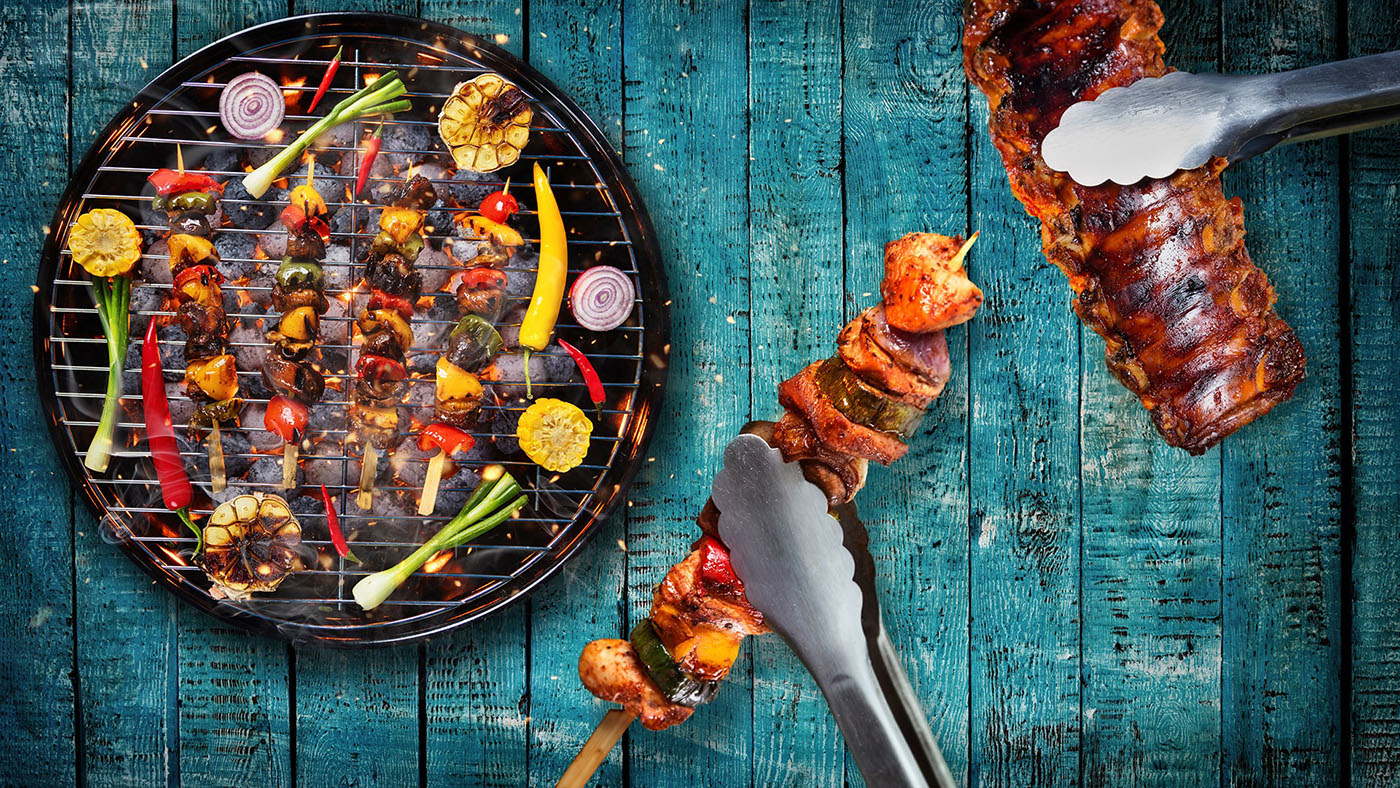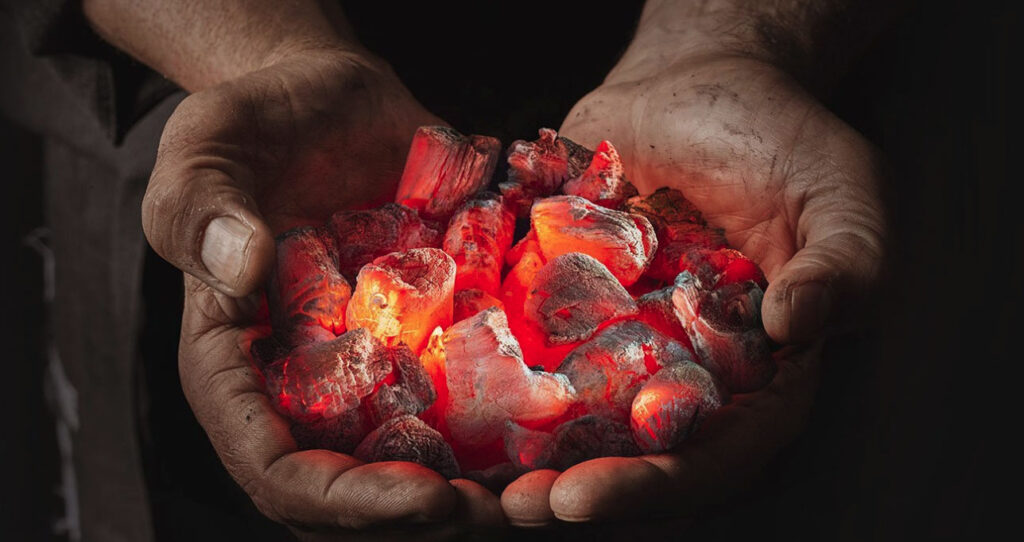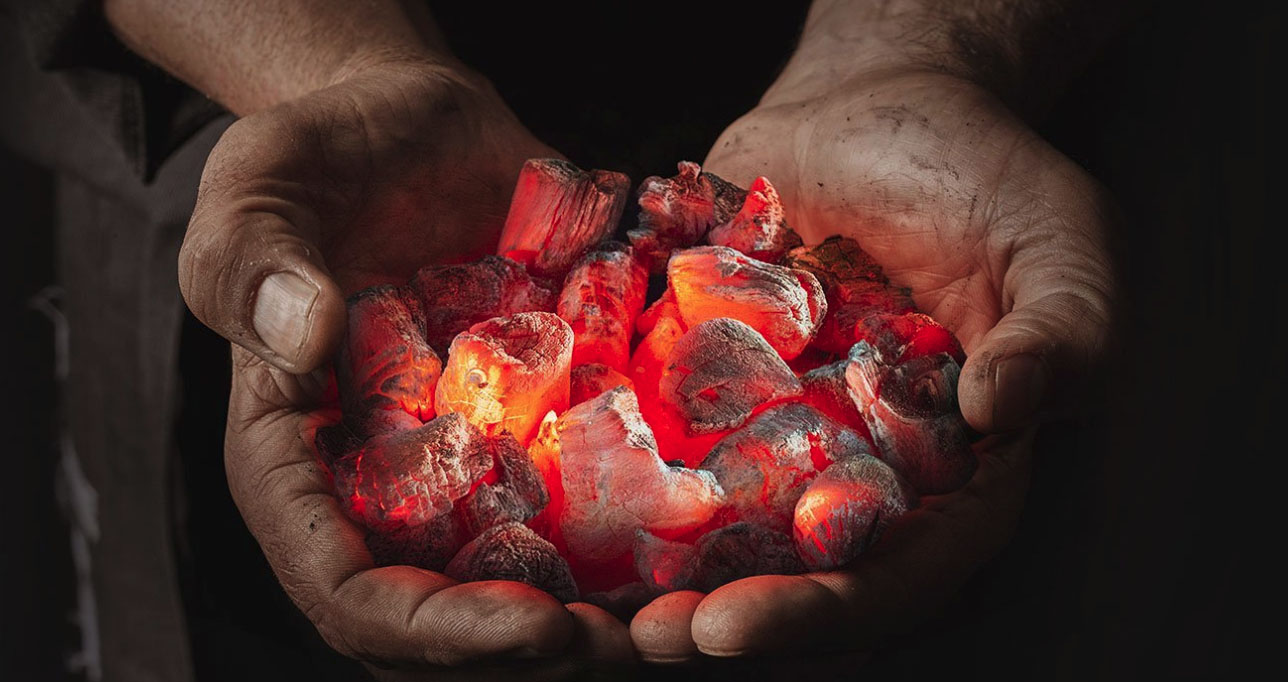
Fadi Kattan
Humanity started cooking when we discovered fire. Ever since, we have been on a quest: mastering and domesticating fire and yet sometimes, our primeval tendencies reemerge and we kindle, stoke and bask in the intense heat of a large blaze, in the shape of a bonfire or barbecue.
For chefs, fire is the greatest ally and enemy. It helps us transform certain foods from something tasteless to something toothsome; this season, I think of quince – that knobbly fruit, so bland when eaten raw, but magically aromatic when it is cooked and its flesh is turned from floury white to a tender, rosy pink. On the other hand, cooking can destroy subtle flavours. Here, I think of the lip-smacking, briny taste of a raw oyster — and the disappointing rubberiness of a steamed, grilled or pan-fried one.
It is no coincidence that fire is celebrated in ritual as well as cooking. For me, it is a clear reminder of the pagan origins of monotheistic cultures, so often denied. From the healing fire, to the fire of the sunken traditional clay oven, the tanour, as used by the Samaritans at their Passover from the symbolism of the Holy Fire to the tradition of roasted lamb for Easter, we revere the power of this mighty energy.
And yet, much of the art in kitchens today comes from expertly controlling fire. We protect ourselves, while using it parsimoniously and delicately and have developed special tools for the purpose. As well as our open gas burners, we use the direct flame of a blow torch to convert brown sugar into the caramel crunch that defines a crème brûlée. While the Josper charcoal grill has inevitable appeal, we also slow cook in water or indirectly in steam.
I always enjoy working directly with fire: embracing its immense power while fearing its dangers. For me, it is a sacred moment when a chef lights the burners in the kitchen. Often, I feel that I hear some supreme voice ordering: “Let there be light!”, while at other times, I hear in my mind Lee Scratch Perry’s “Fire”, the Prodigy’s “Firestarter” or the Doors’ “Light my Fire”! When a kitchen’s burners are turned off, not overnight or for a holiday, but for a sustained period, as happened in many, many restaurants across the world due to the pandemic, I feel that Darkness has won a victory. And then, I hear nothing… the eerie silence of nothing!
But for another manifestation of the wonders of Fire, let me take you for a step outside of my kitchen, walking through the streets of Palestine on a sunny Friday or Sunday lunchtime. Despite yourself, you will find your mouth-watering with the smell of meat sizzling in a fire that catches on the breeze: lamb or — in the Bethlehem area — pork, being cooked flauntingly on a barbecue or in a fire-pit, a zarb.
Closer up though, the scene is typically one of machoism which I find amusing or pathetic. While women will have strived hard: preparing the meat, chopping, seasoning it, putting it on skewers, it will usually be the Alpha male of the family who lights the fire! Of course! Who else? The whole show of spreading the charcoal in a barbecue, lighting the spark, tauntingly, competitively, telling other men present how to do it, and then disappearing until the fire is ready for the next step, is supremely masculine! All too often, the meat turns out a little too close to the colour of the charcoal: overcooked.
The alternative set-up is a group of Palestinian men alone. While they would be unlikely to cook together domestically, there is always enthusiasm for cooking outdoors and the barbecue ritual will be the same as above, except when it comes to two points. First, the meat has either been prepared in advance by their partners or mothers or worse, by a butcher or poultry store, and second, the meat or chicken is more likely to be coated in a mess of unnamable, readymade sauces.
Consciously or not, there is a very patriarchal idea behind the way we manage the barbecue, of “protecting” the women from Fire! There is a sad irony behind this, because on any other day of the week, the women in a Palestinian family may be risking their lives over what we refer to here as the “traditional oven” but which is, in reality, a metal box with badly-installed gas runners that never quite generate the right amount of gas when lit. The few times I have had to use one of these, I have genuinely feared for my life!
Young Palestinian men keenly showing off with their barbecuing techniques, may have forgotten the delicious, warm, flat-bread that their mothers and grandmothers lovingly produced from a clay-fire oven, the taboun, or the sumptuous, jams they tended to over an open wood fire. Do they not see the femininity of fire, I wonder? Do they only see it as the Destroyer?
Despite my sensitivities, I do admit that whenever I am invited to a barbecue, I am automatically drawn to the fire, like a moth to the light, and often, end up grilling the meat, even taking a lead among the menfolk! However, confession time, I wish to point out that is not because of my desire to prove my masculinity, rather because I love my meat pink and of course, because cooking is in my veins and I cannot control myself. Luckily, I do not go often to open kitchen restaurants, yanni, I would end up always disturbing the chef in his or her kitchen.
Yalla, let’s start a fire!




